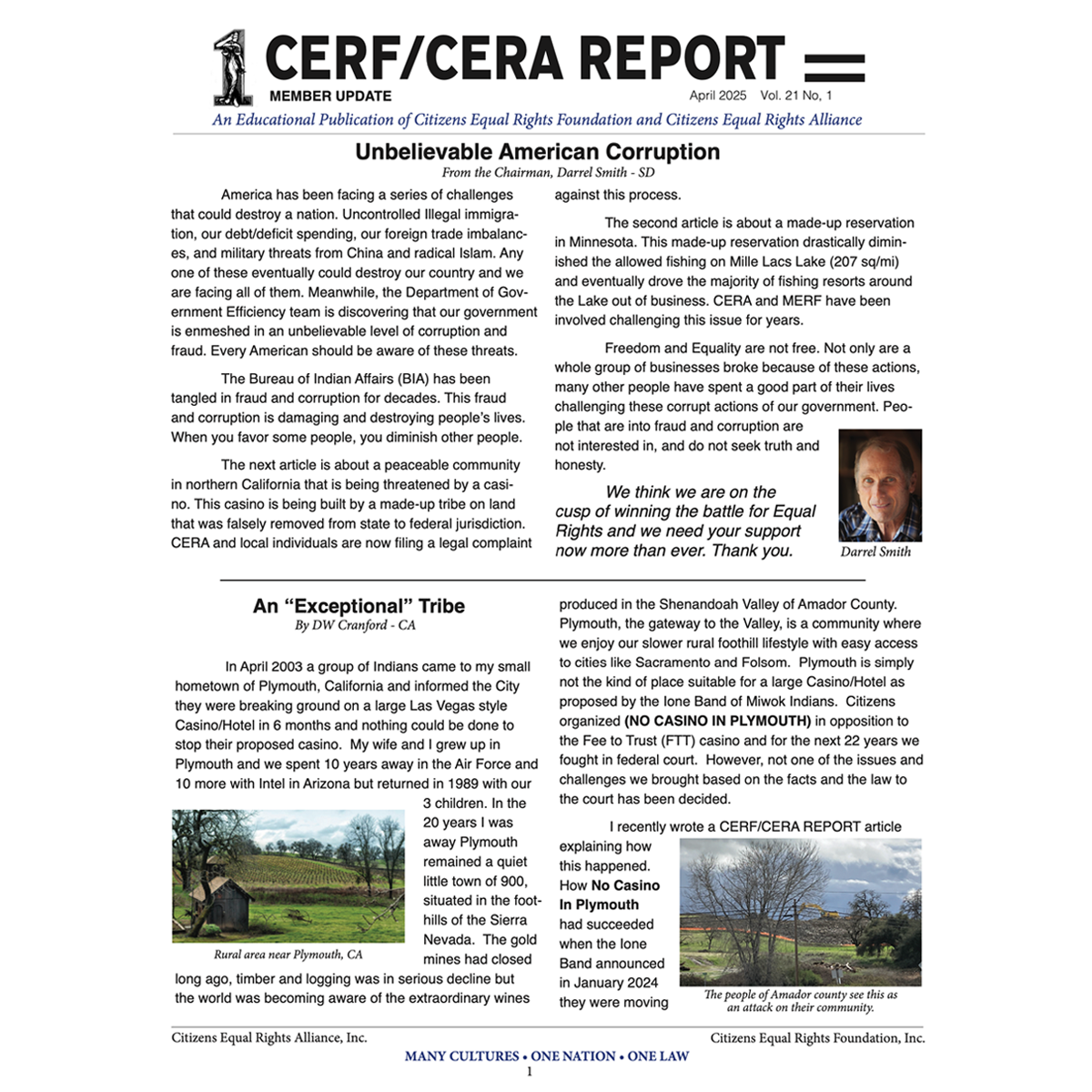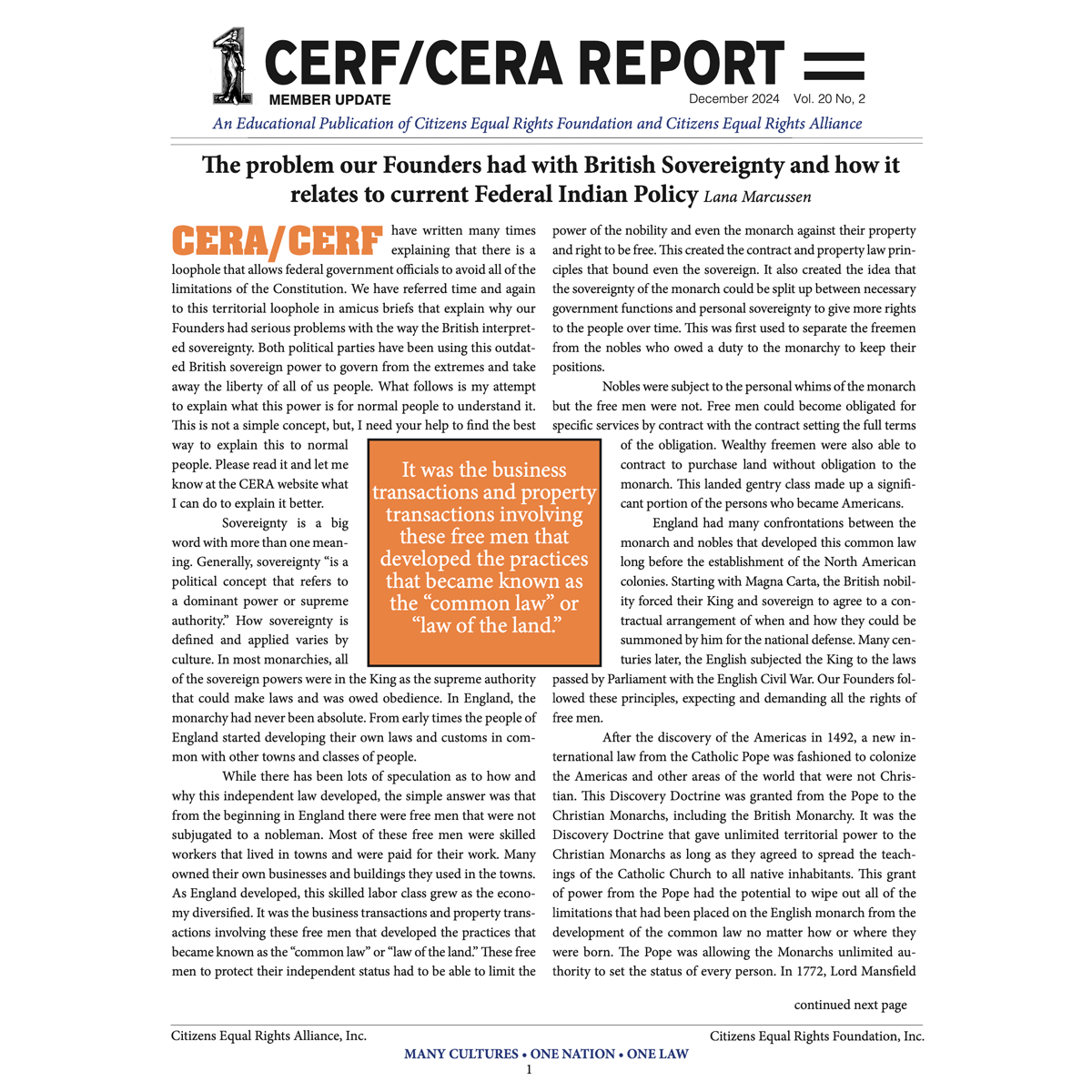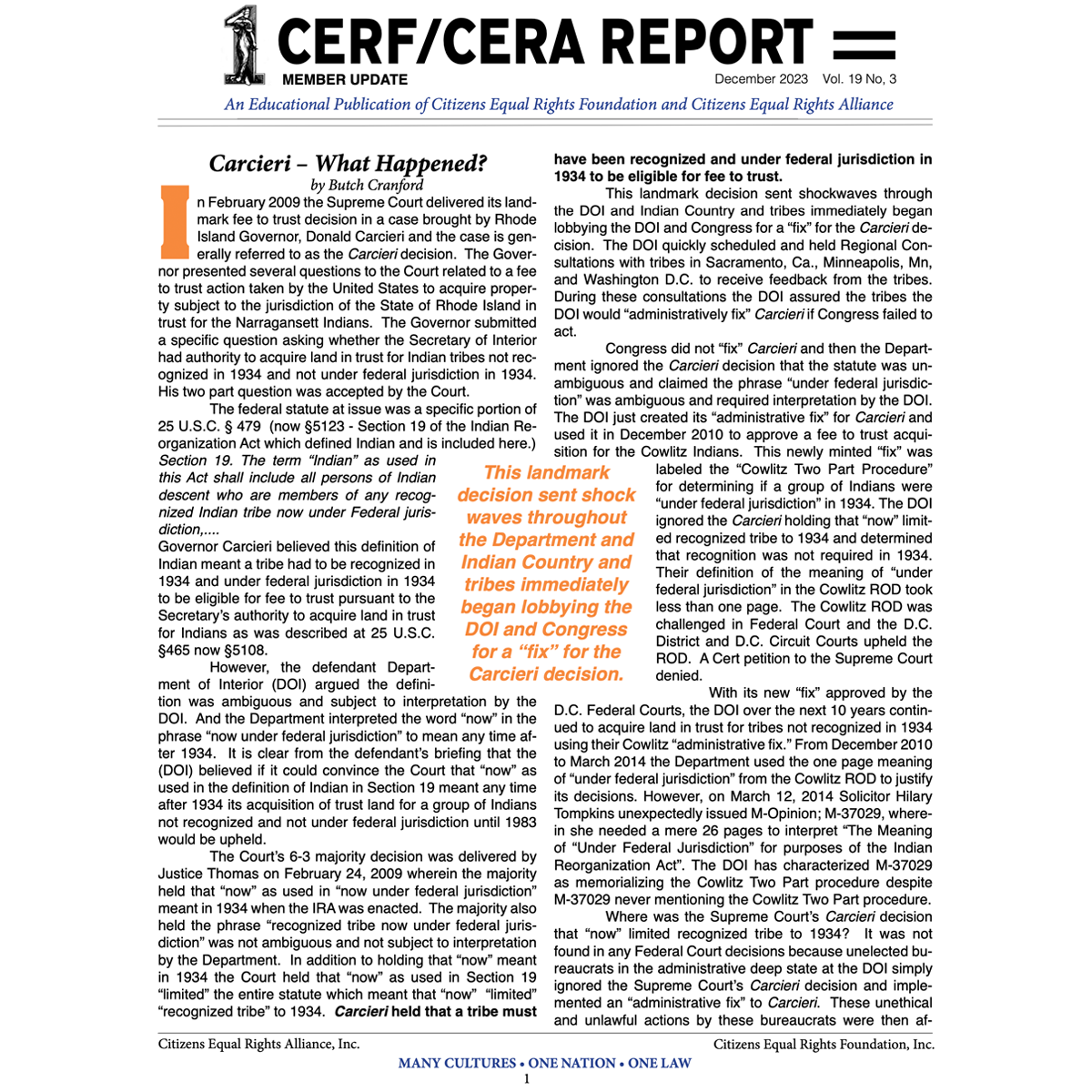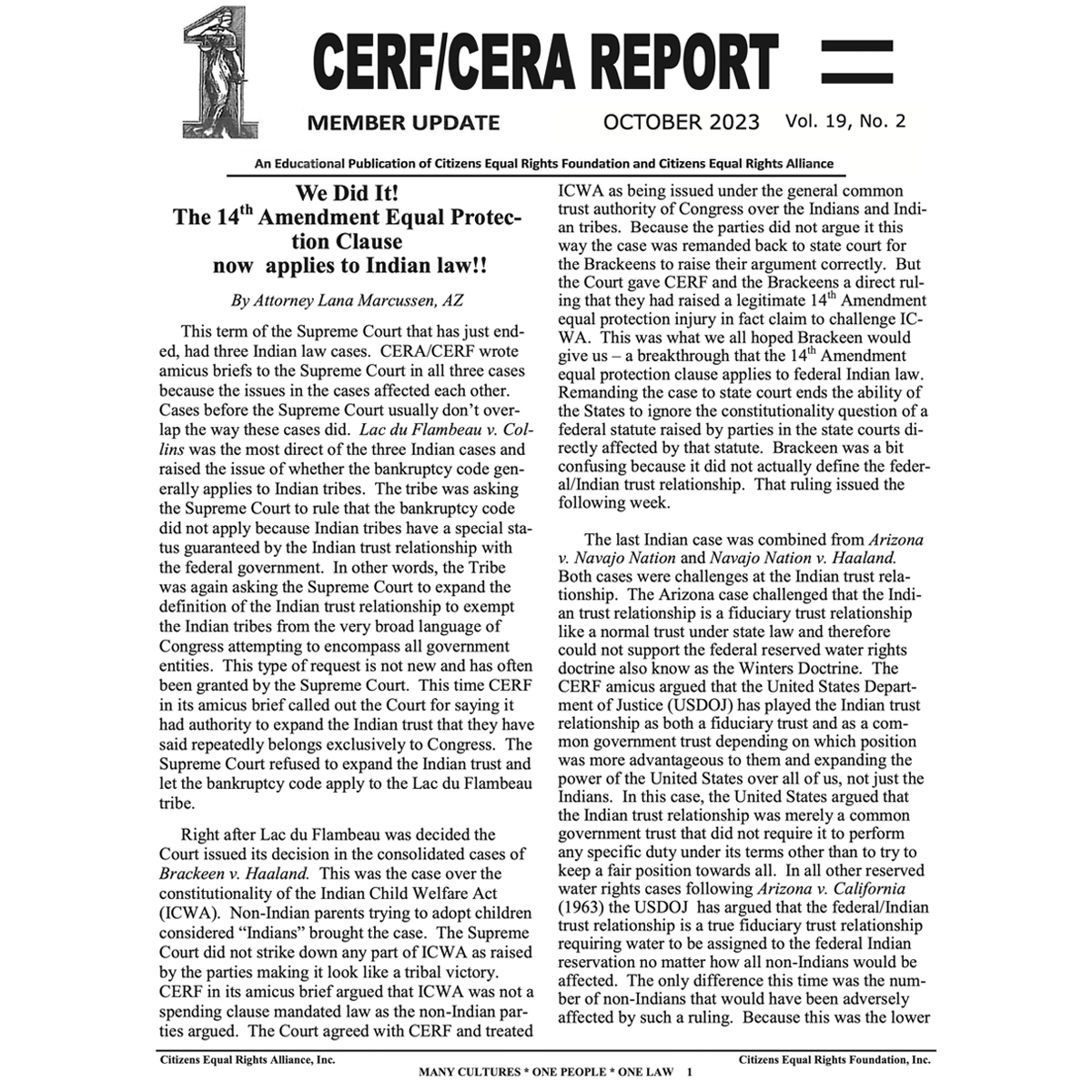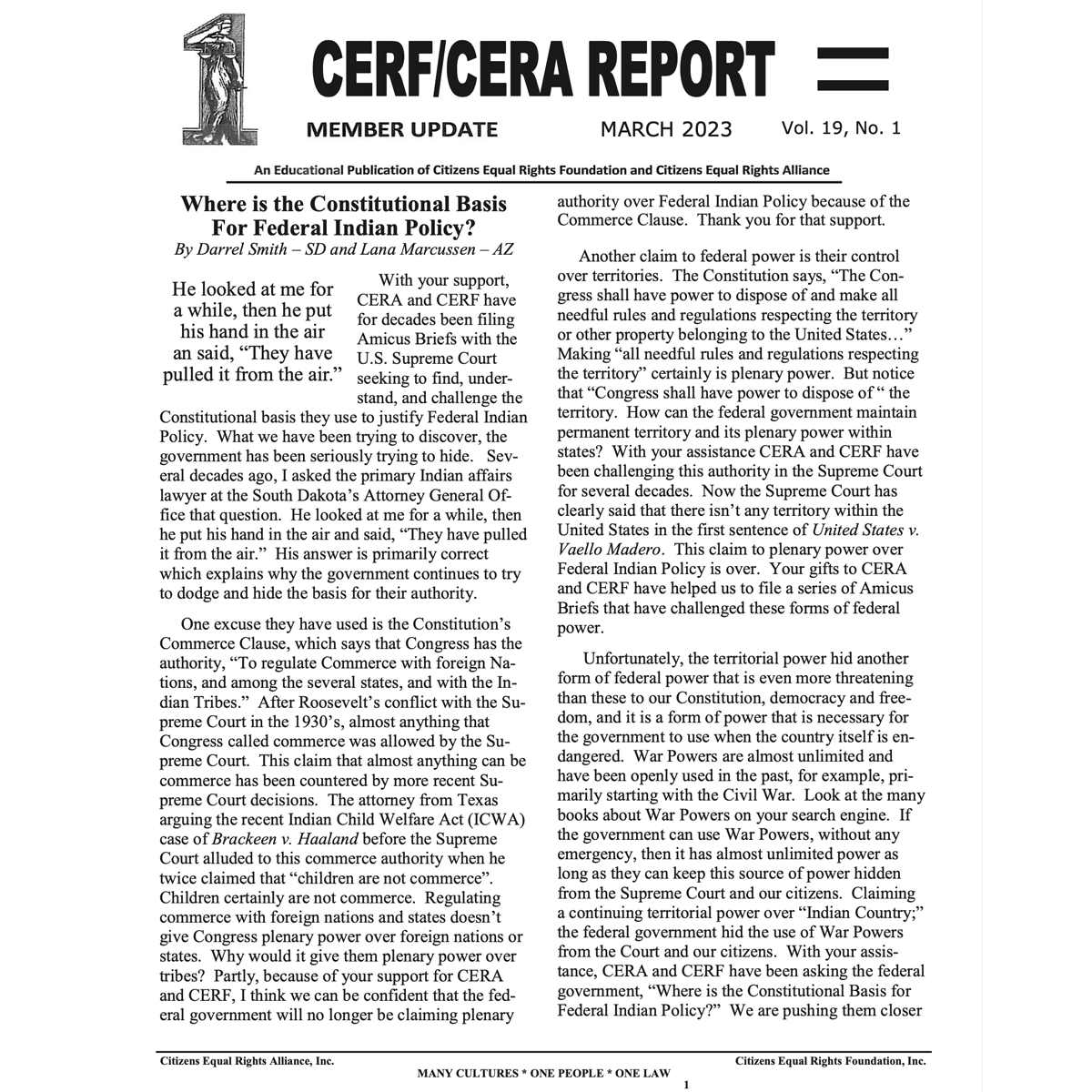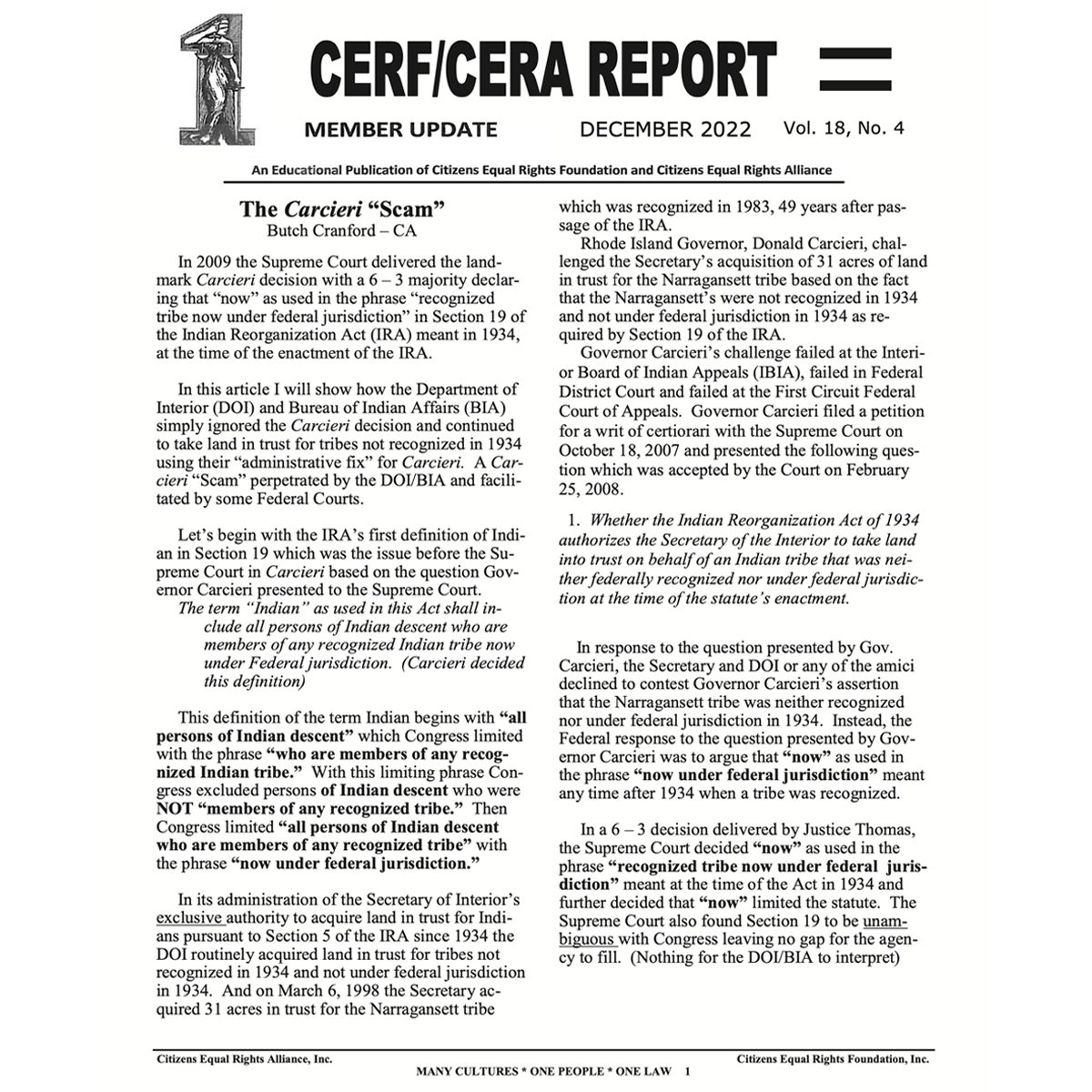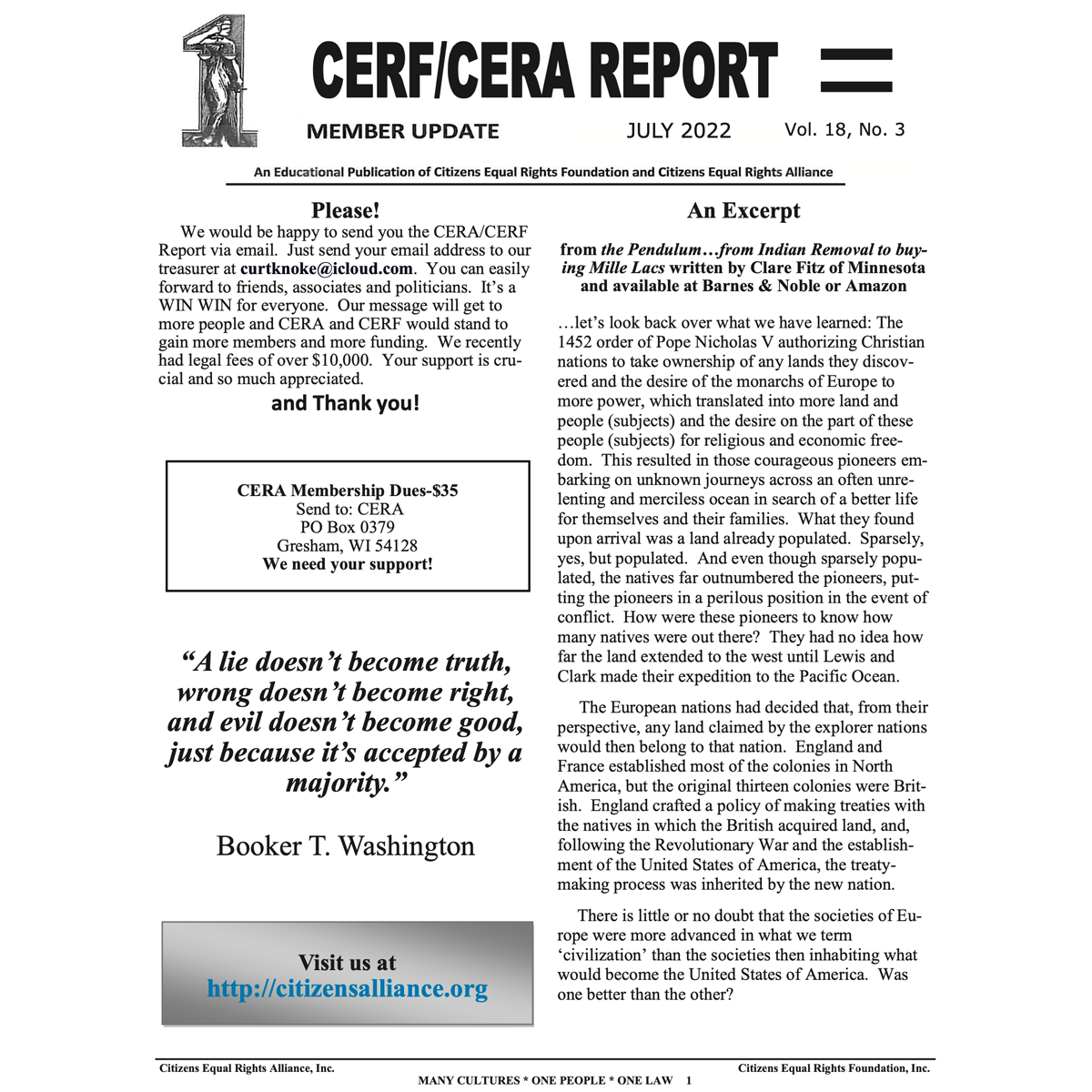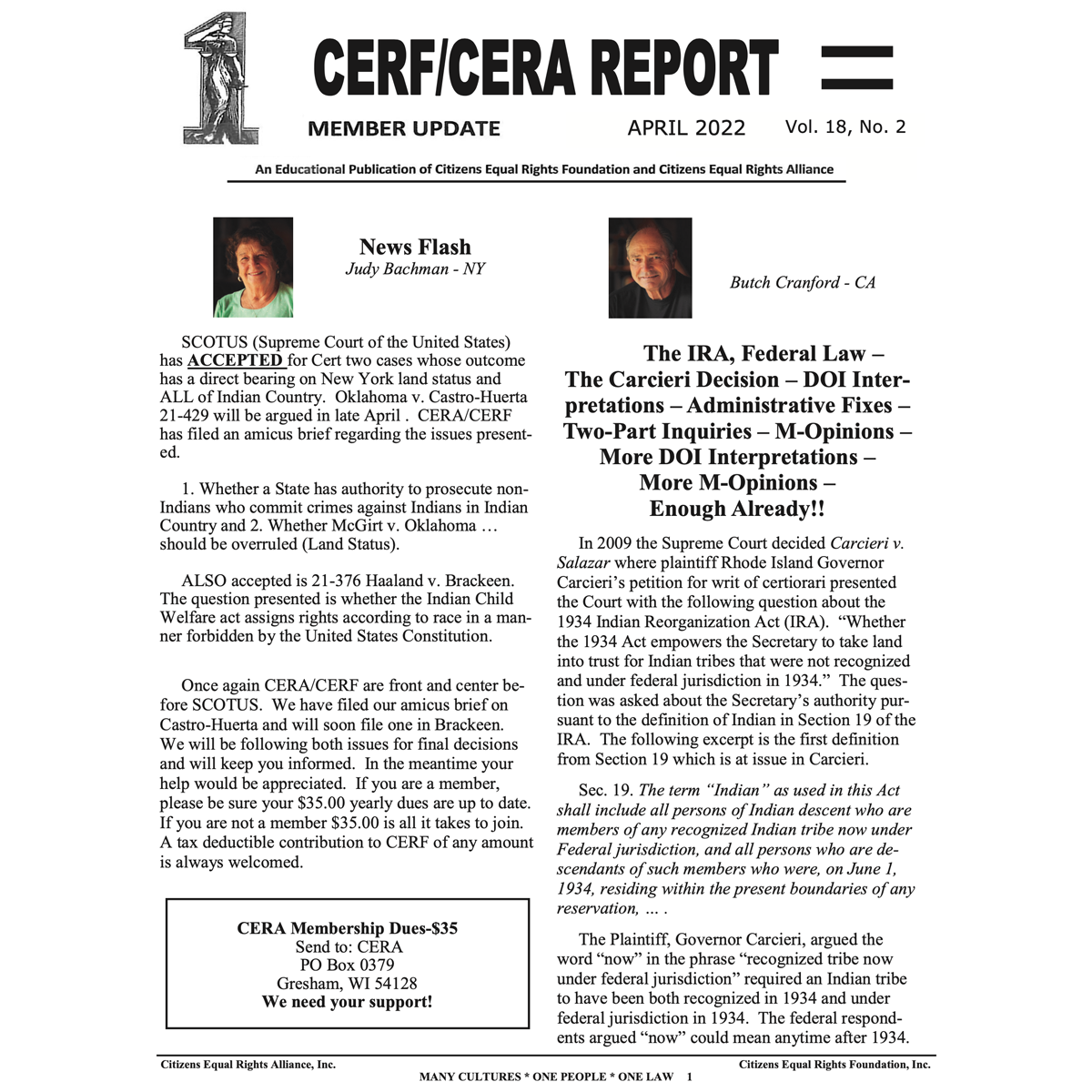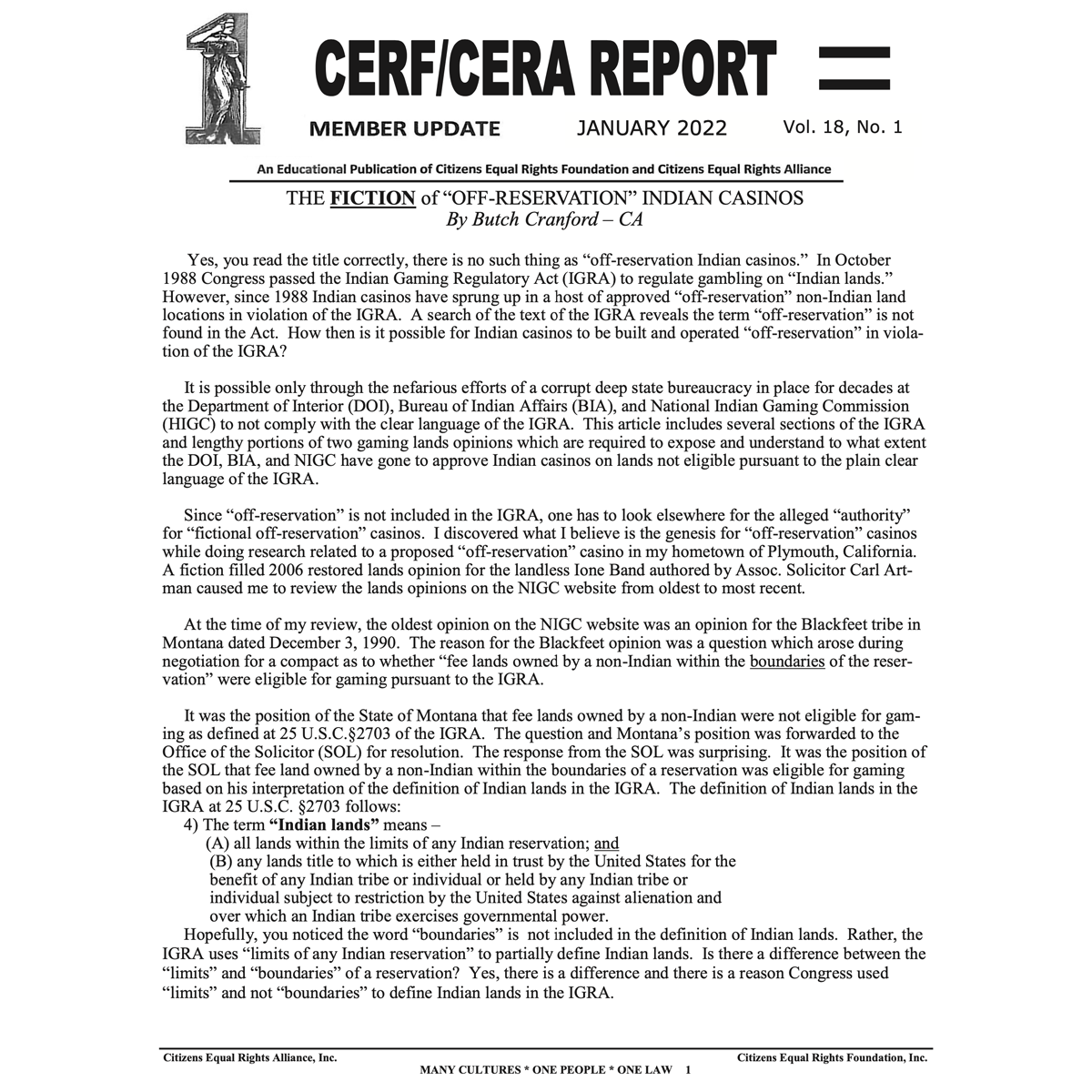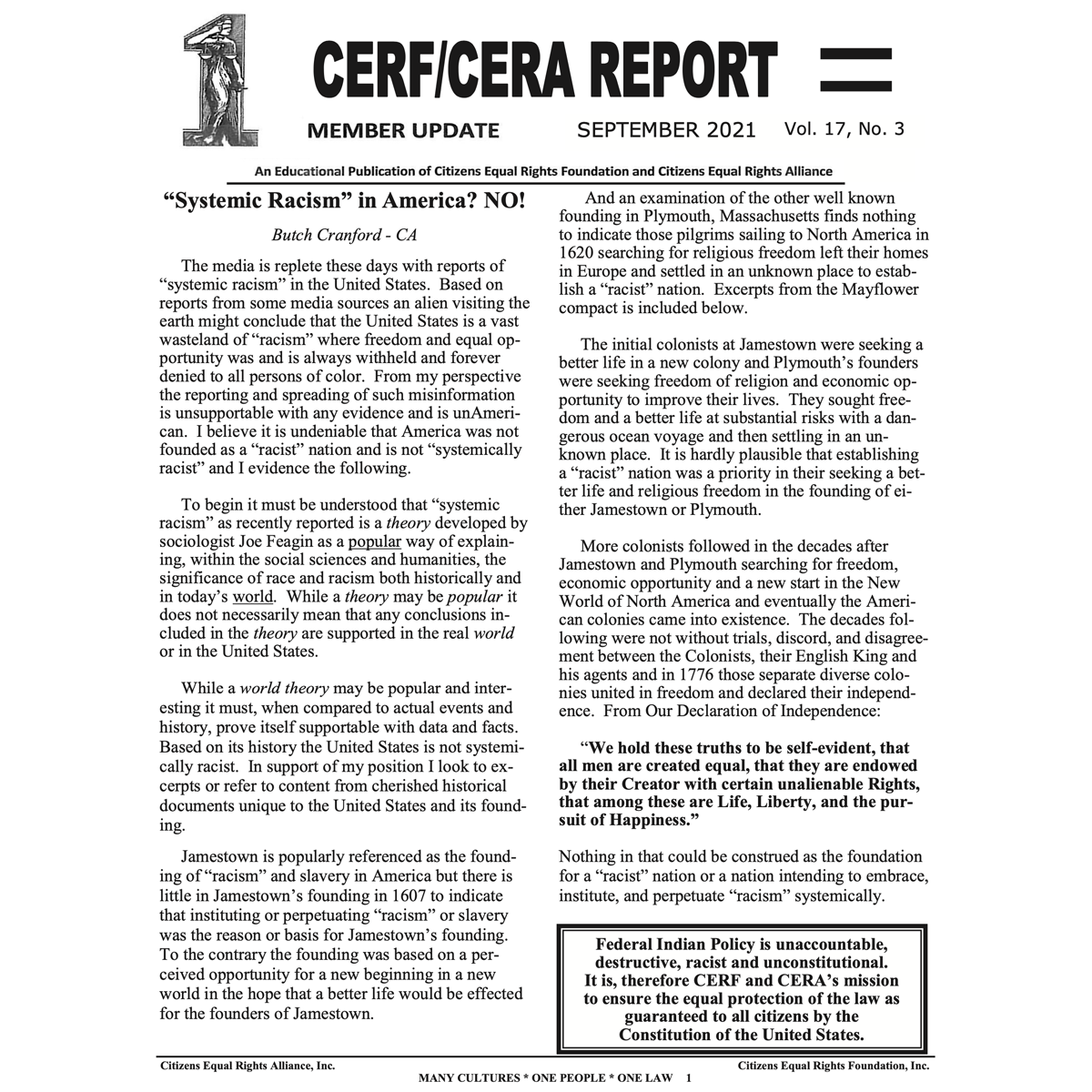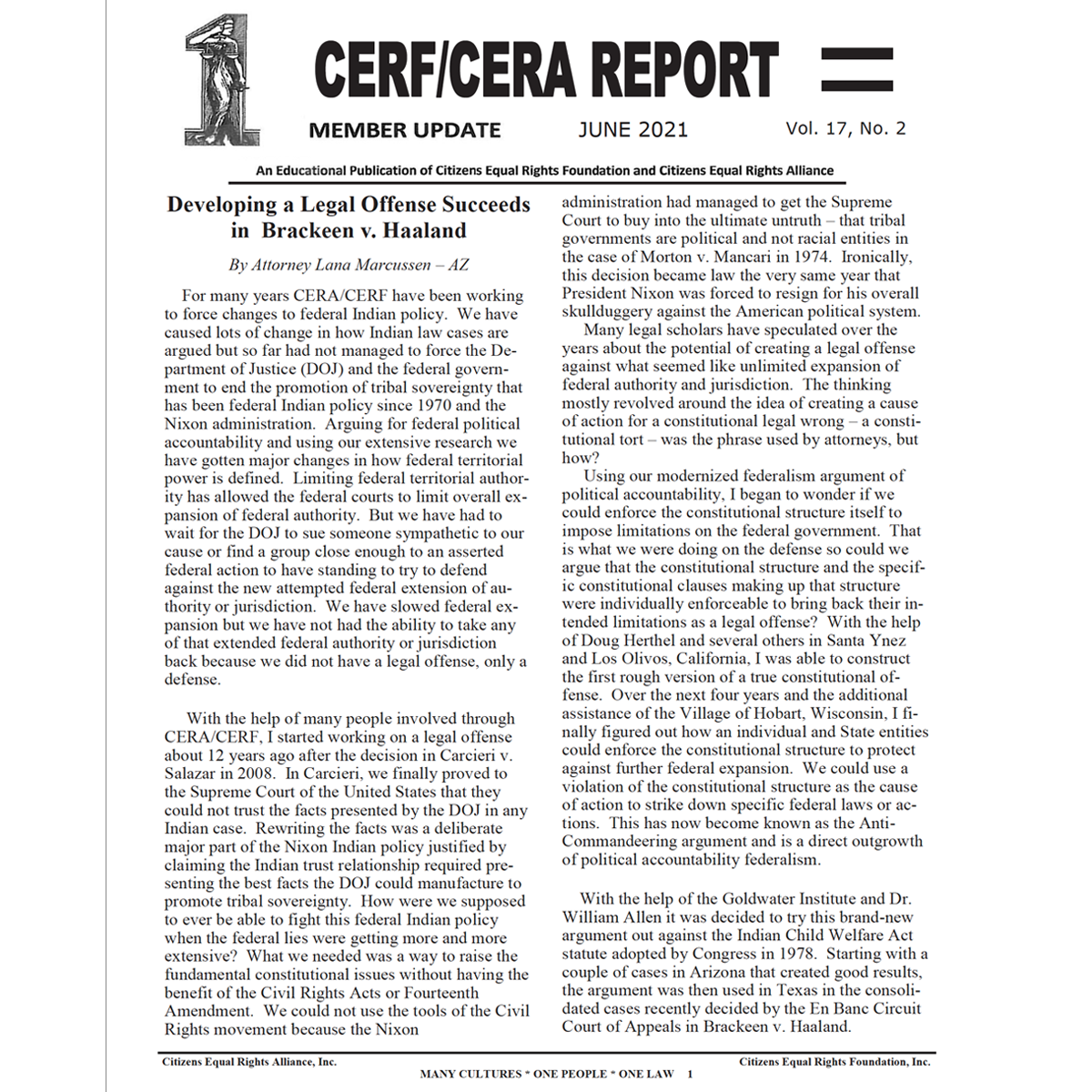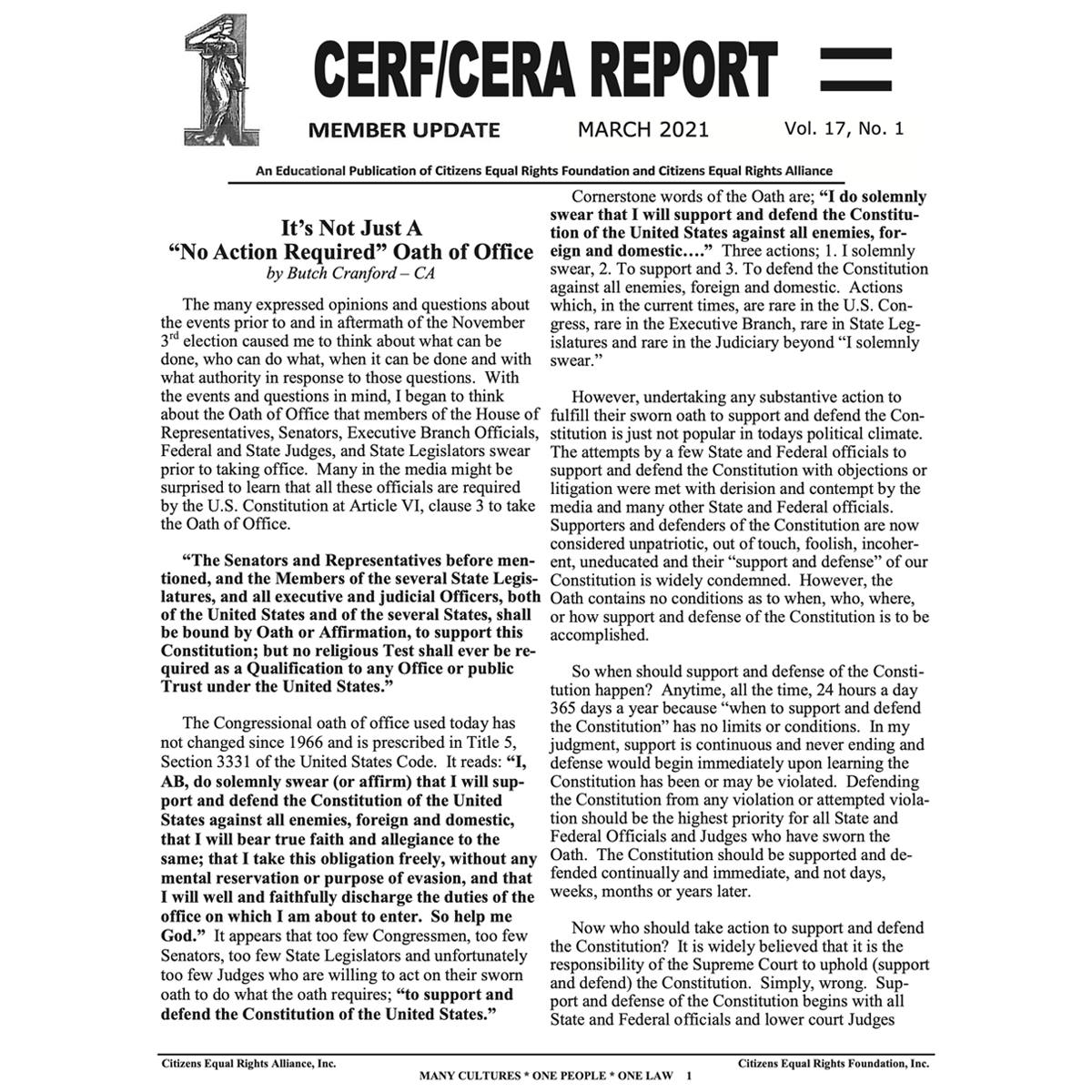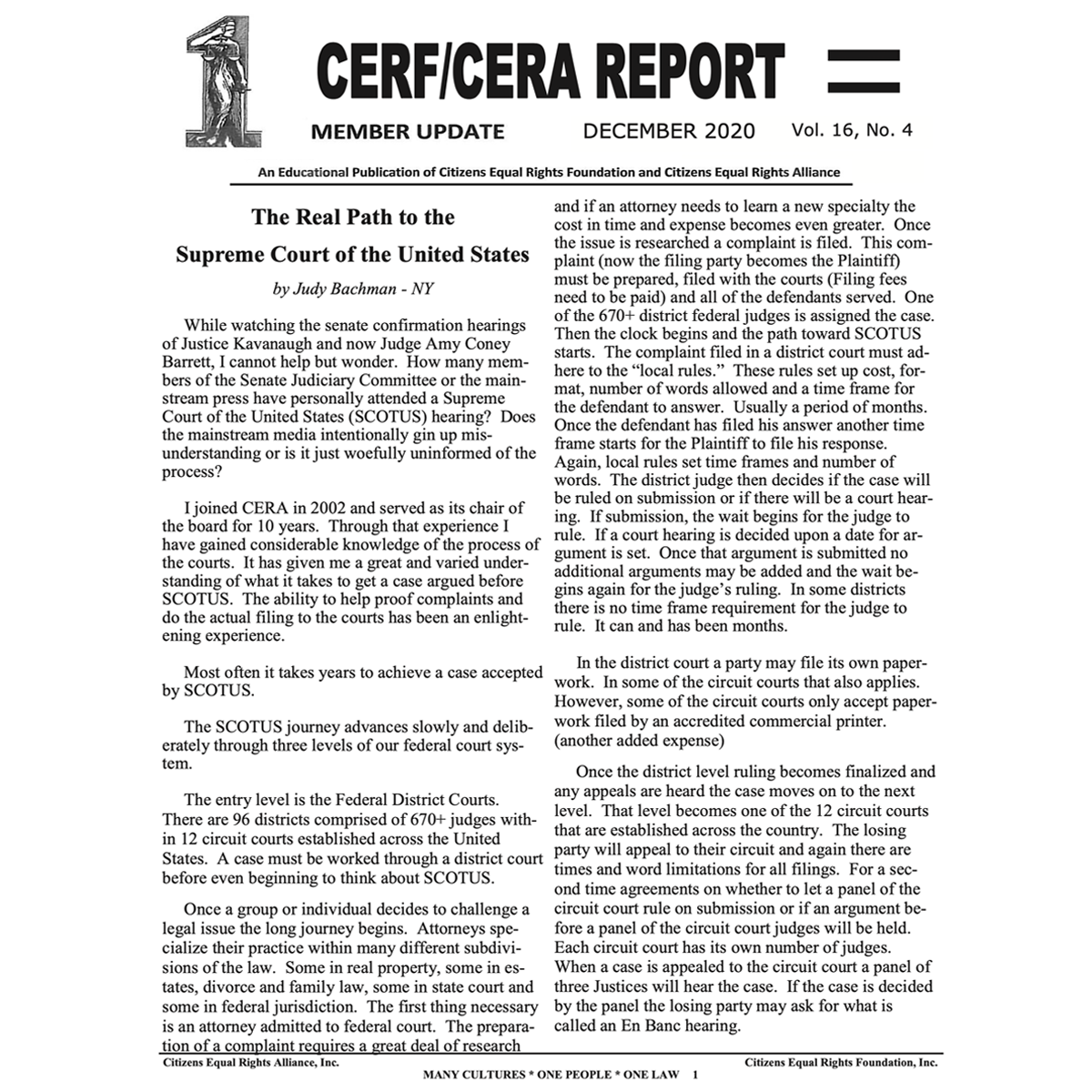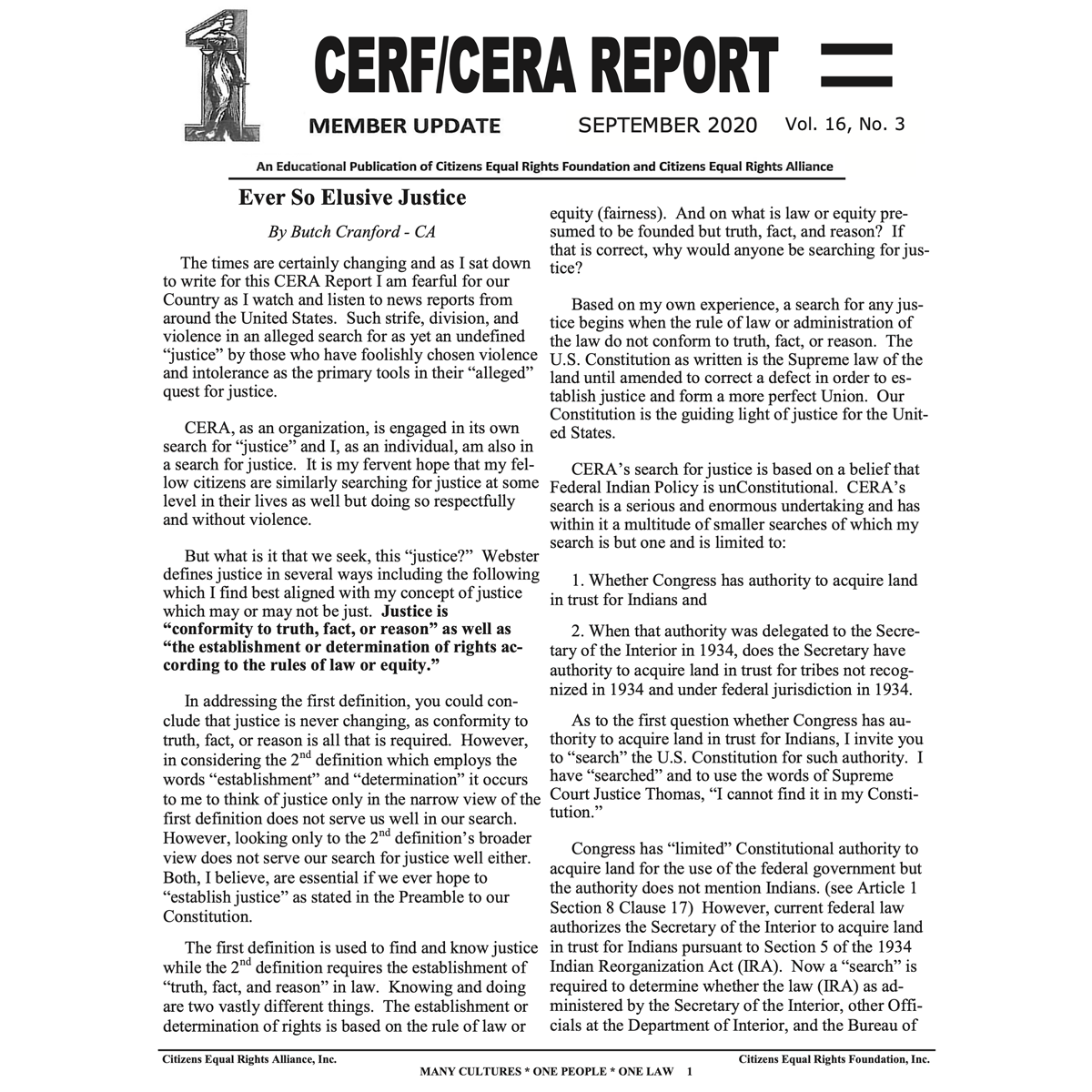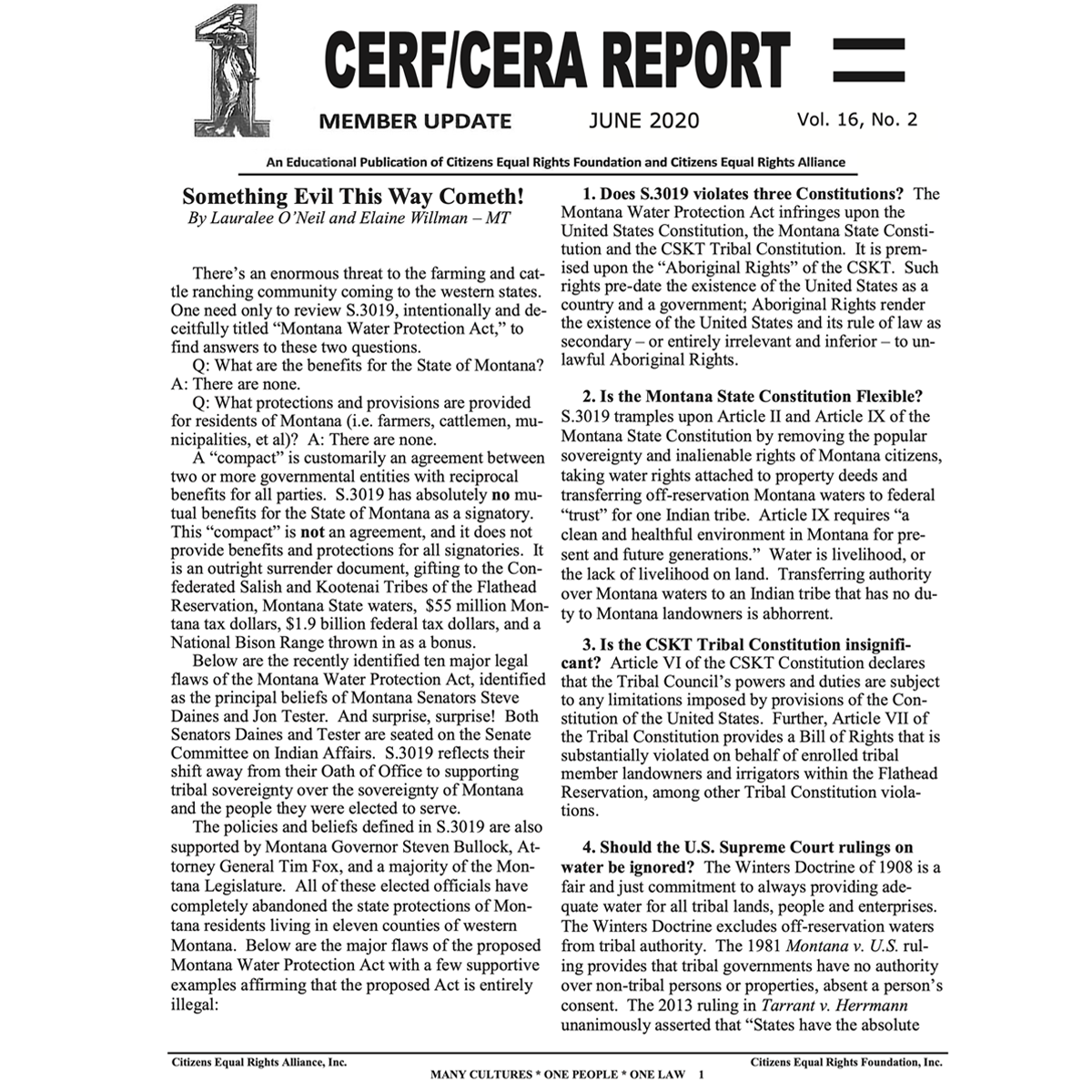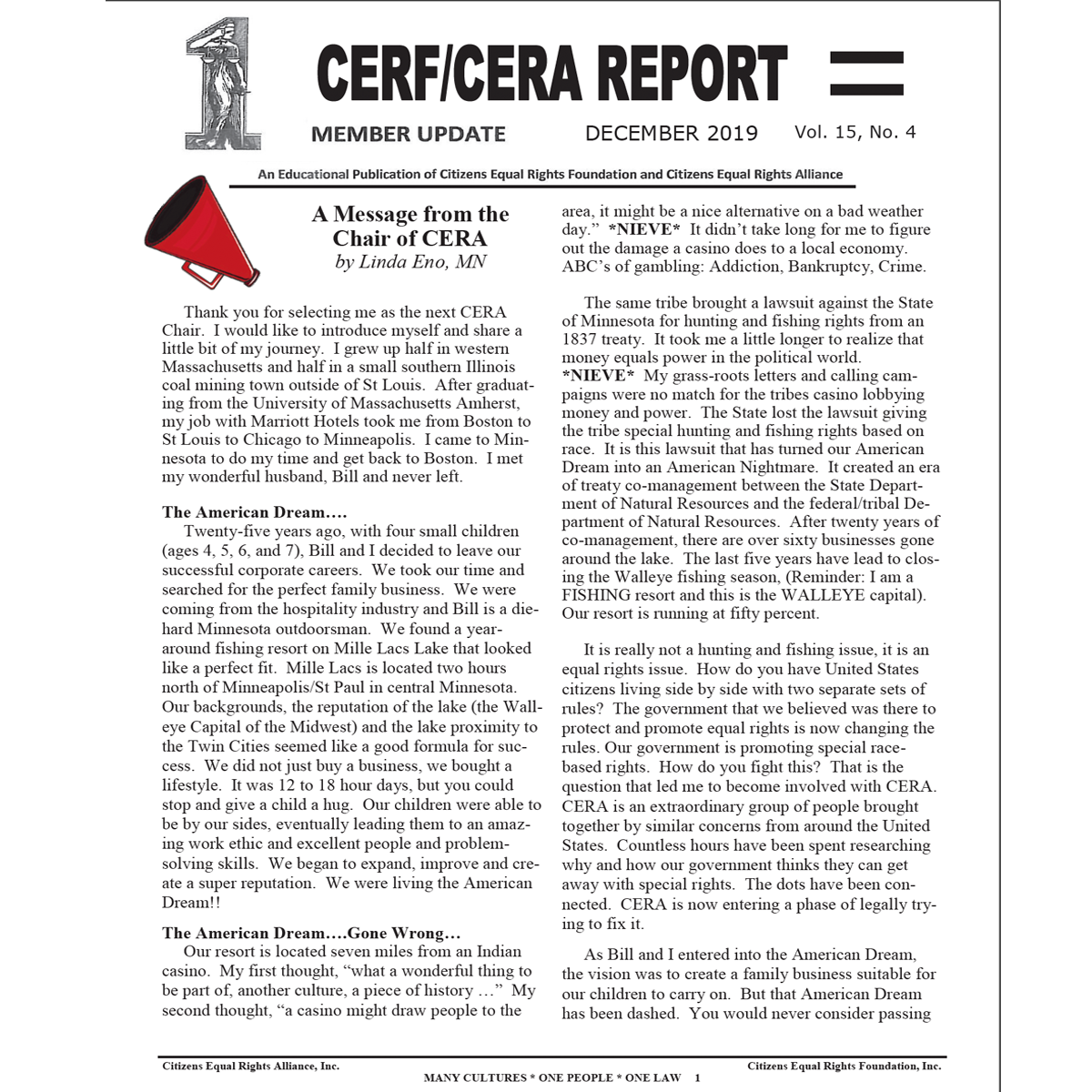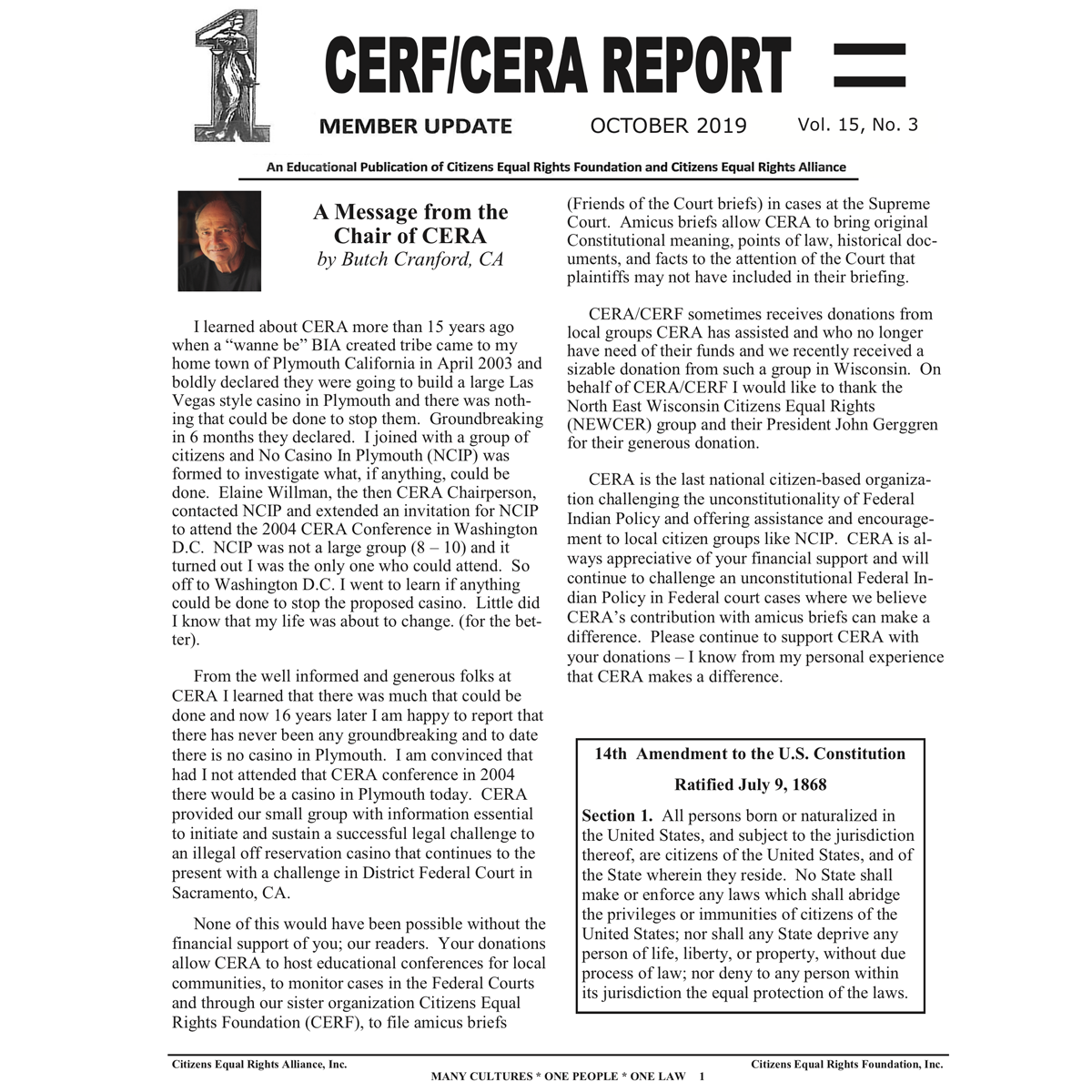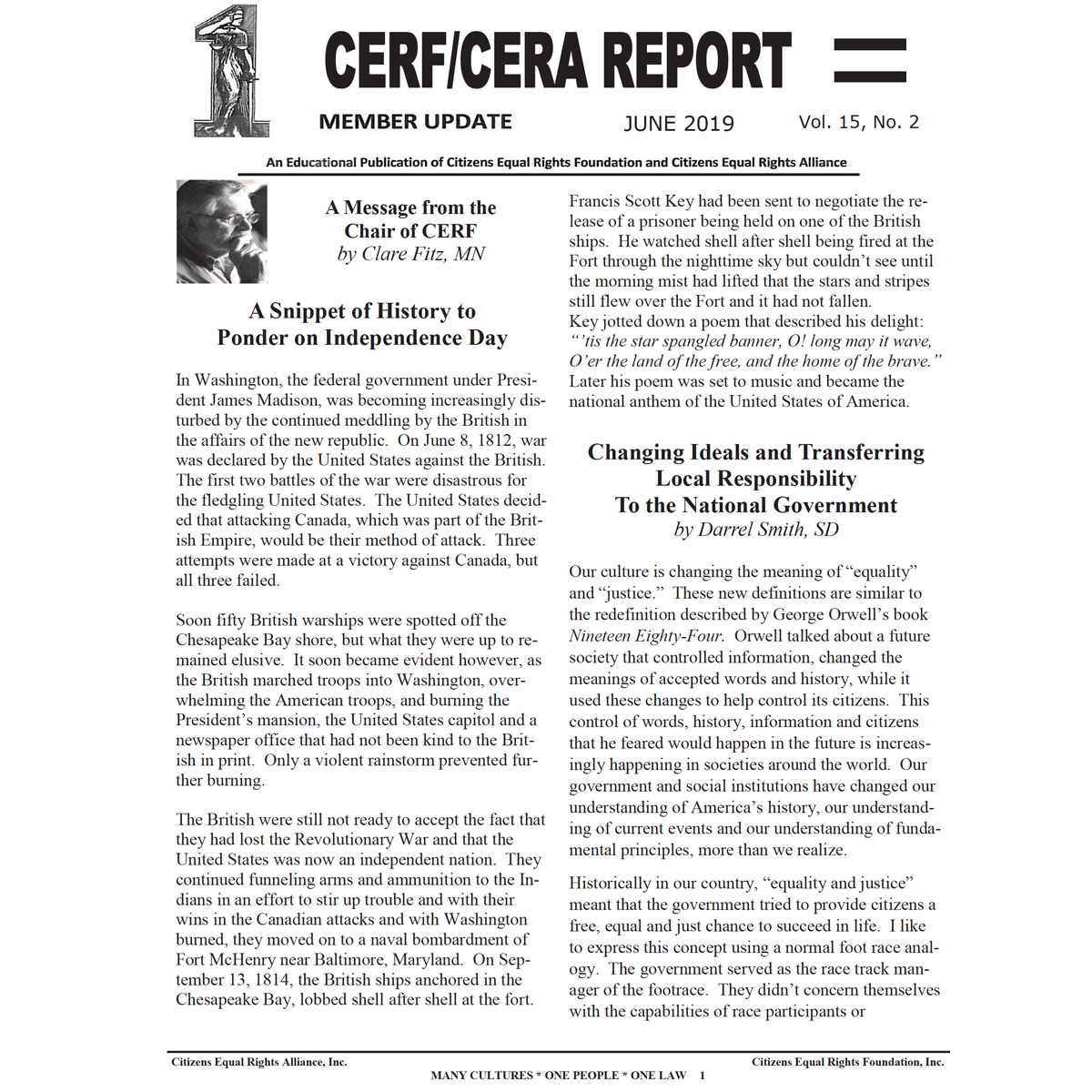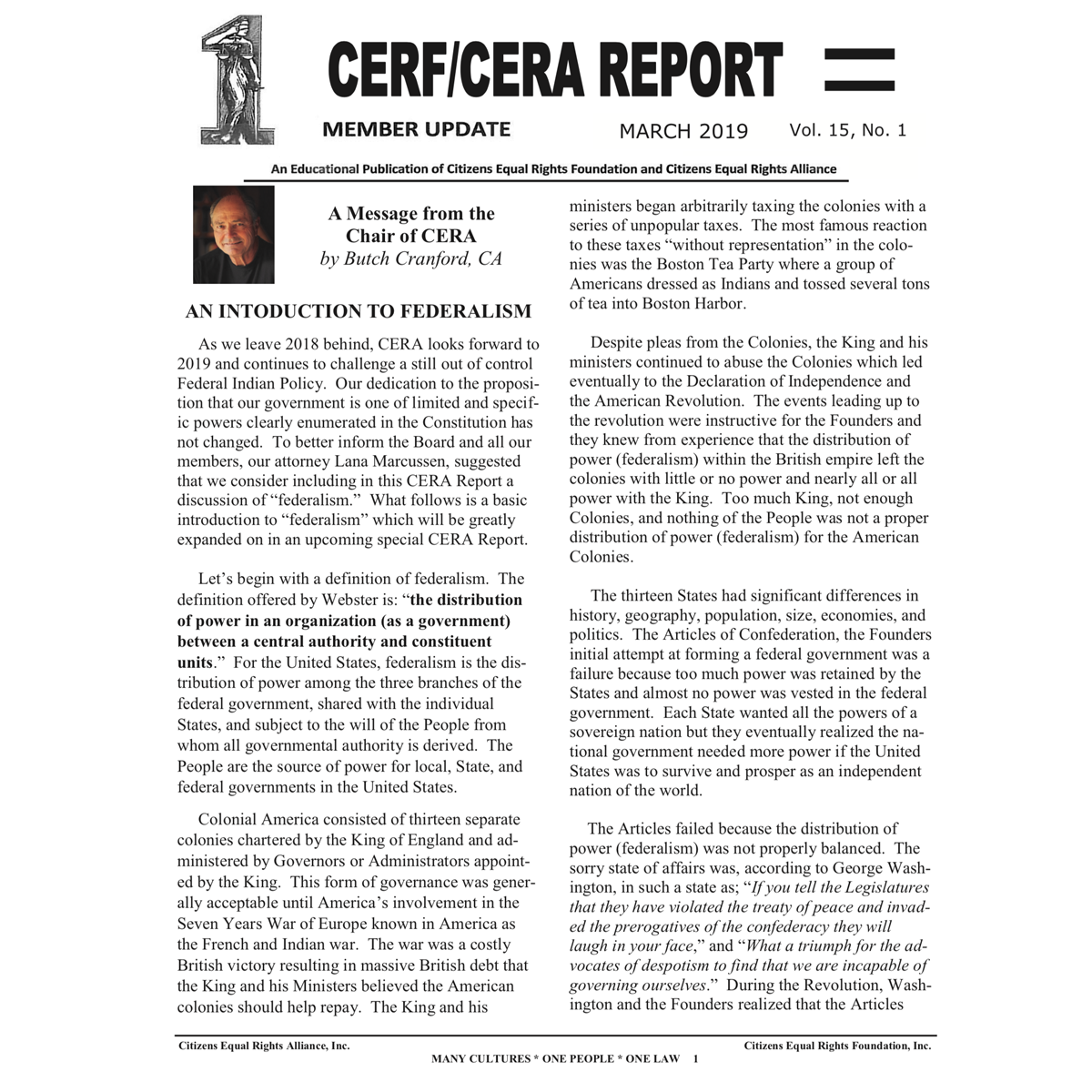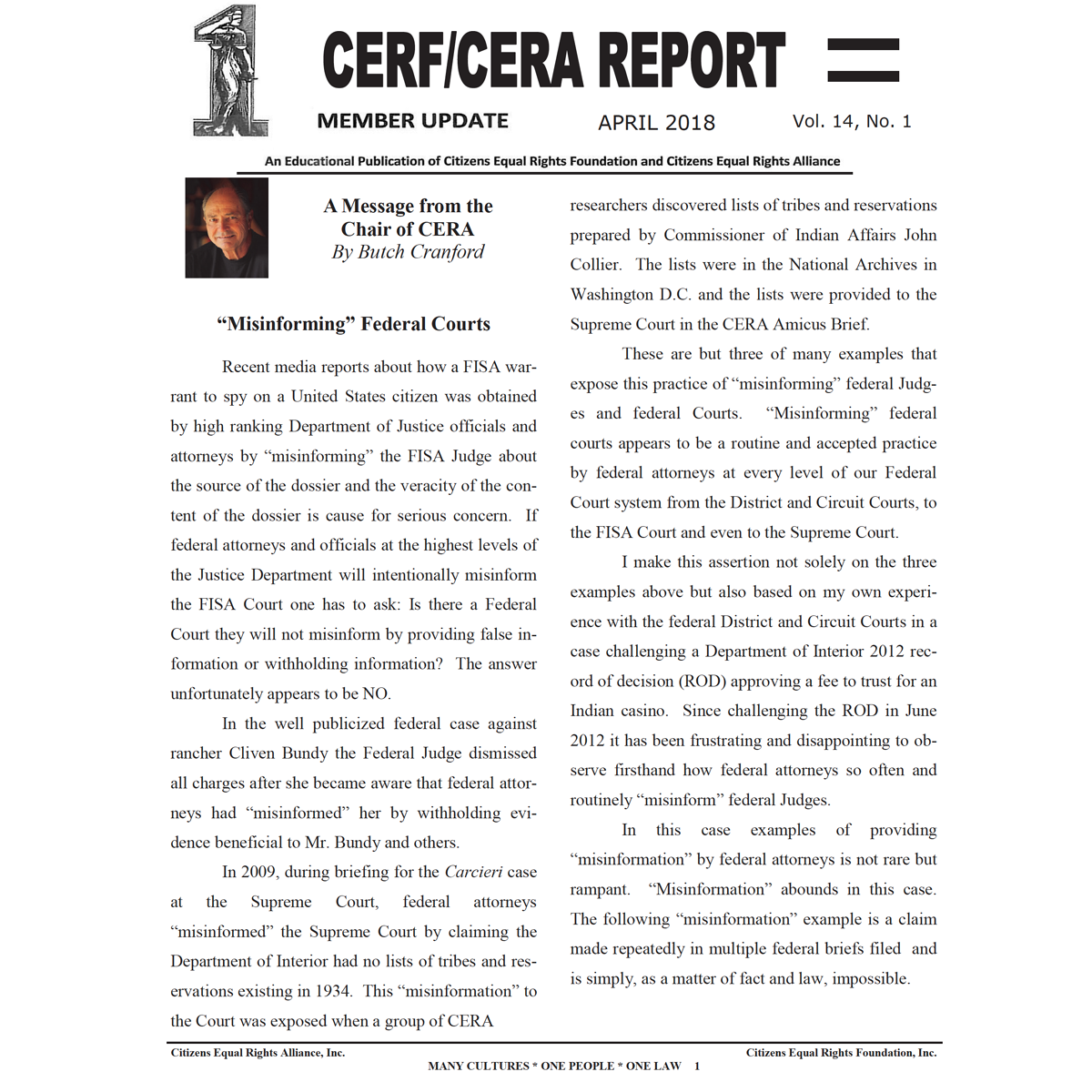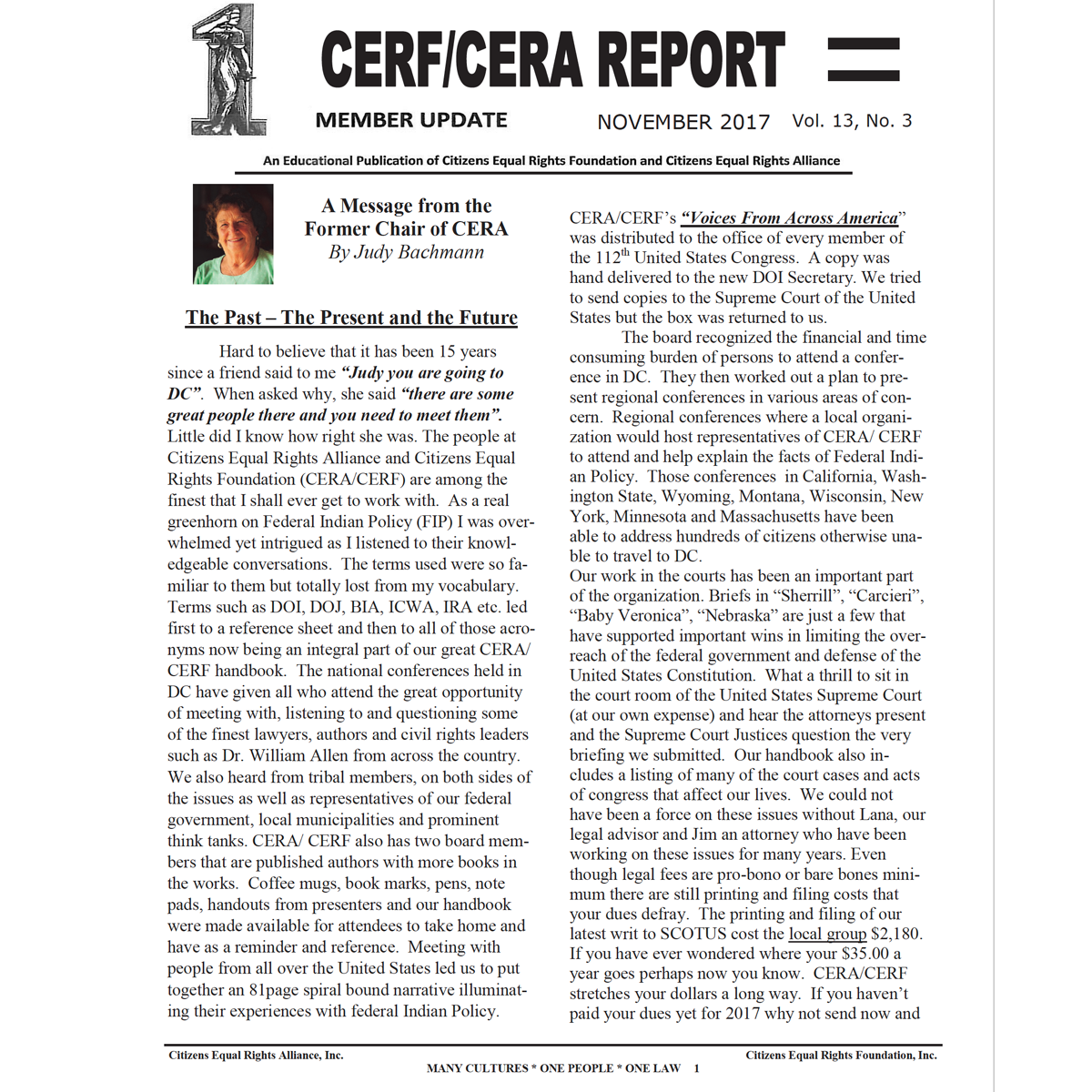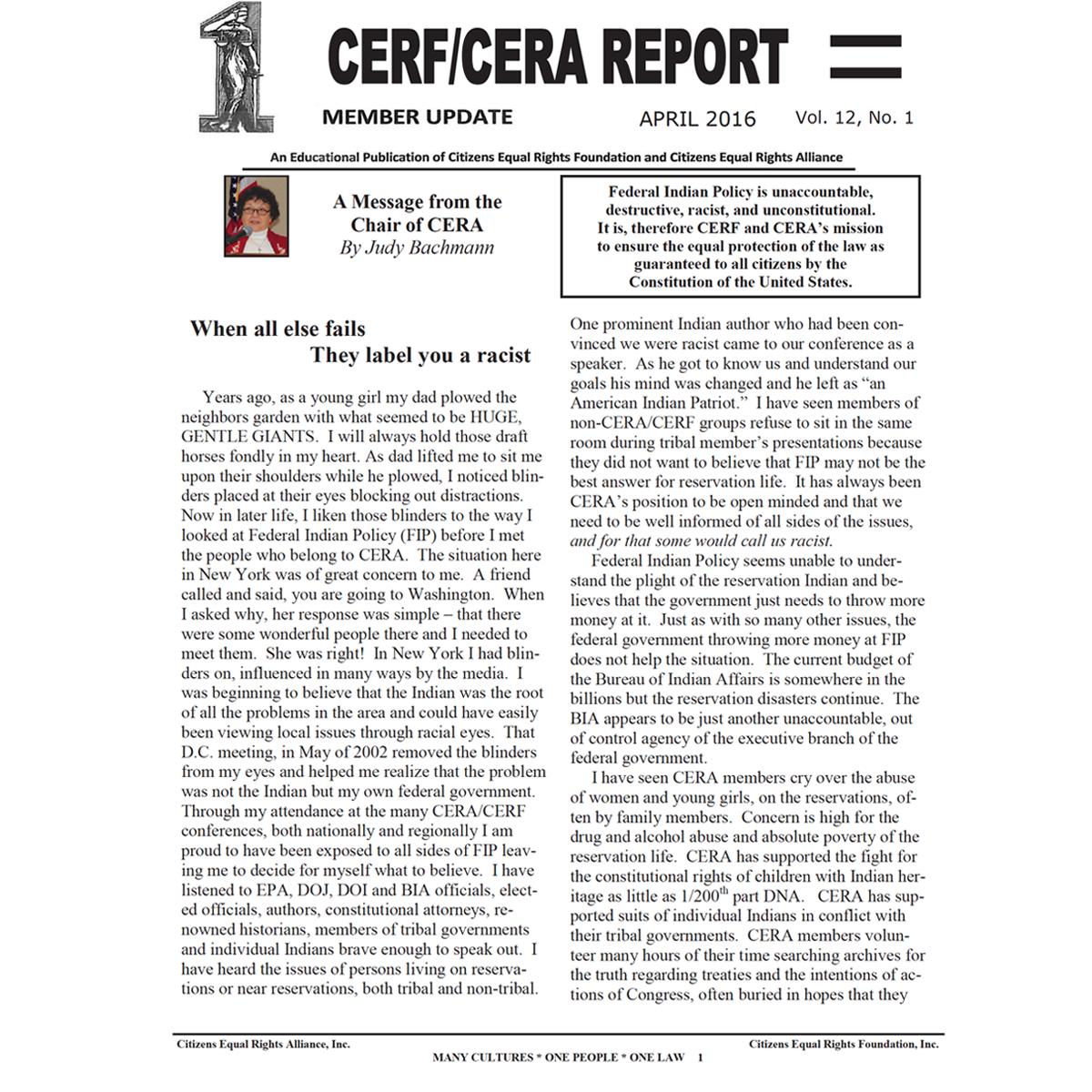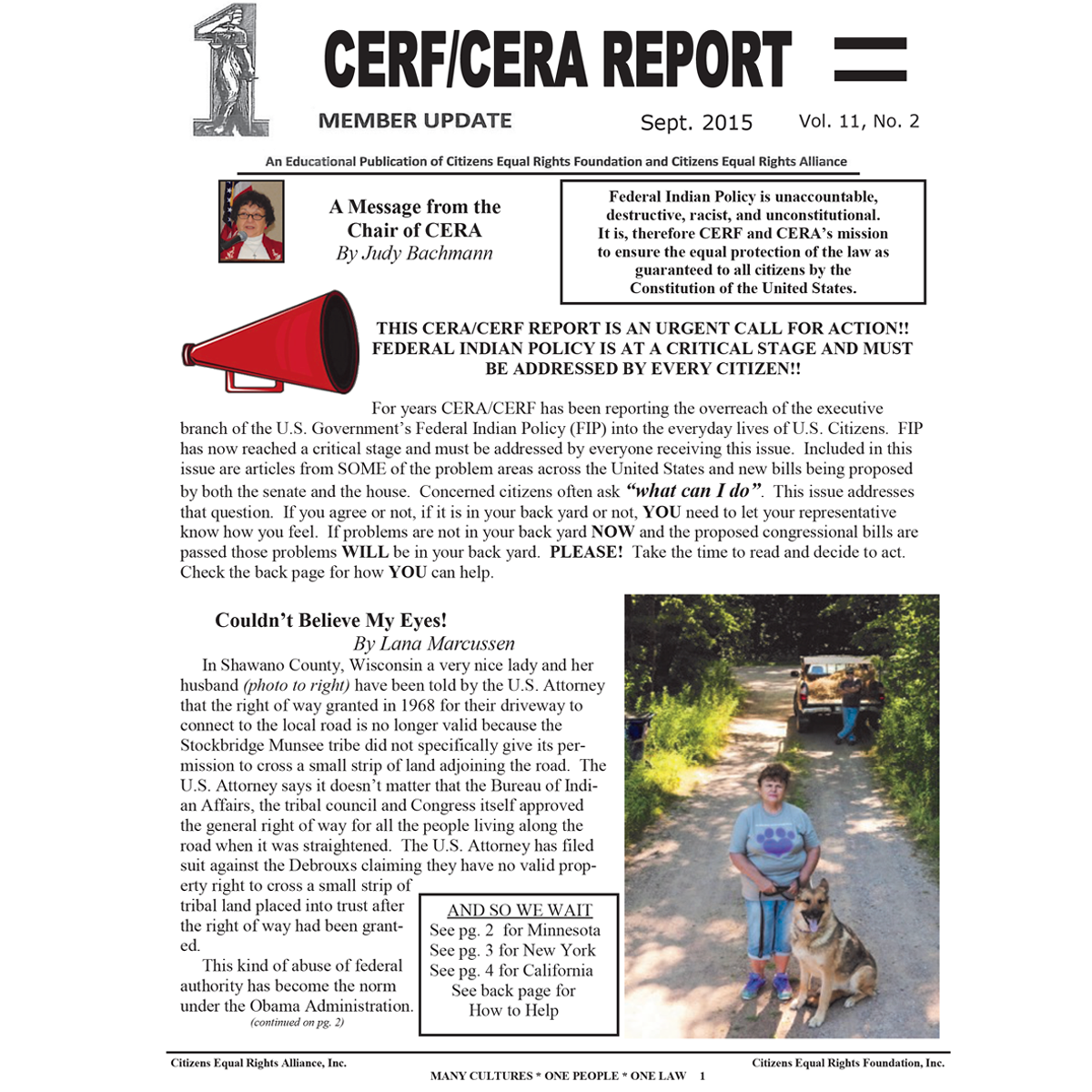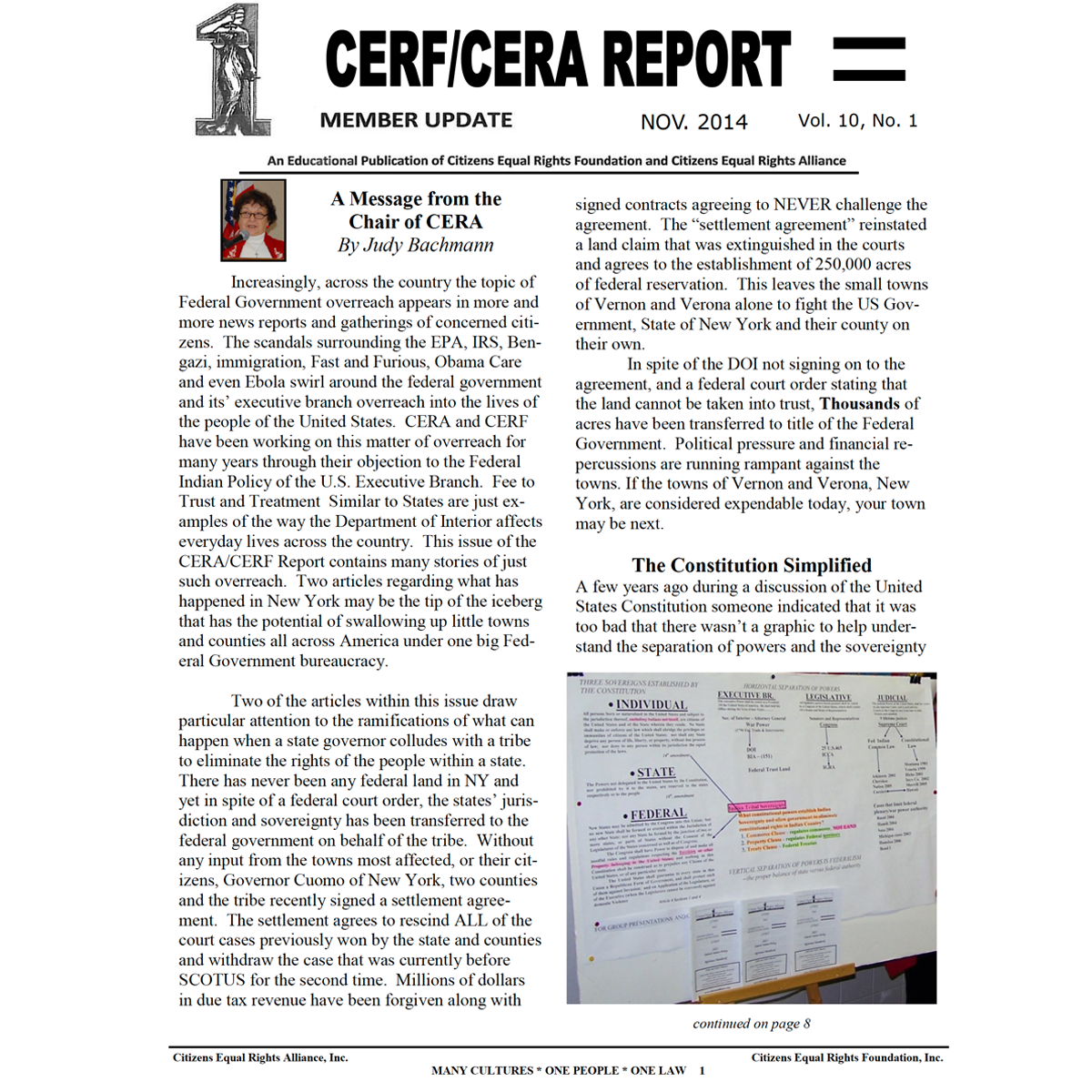HISTORICAL QUOTES
HISTORICAL QUOTES
The Fourteenth Amendment
All persons born or naturalized in the United States, and subject to the jurisdiction thereof, are citizens of the United States and of the State wherein they reside. No State shall make or enforce any law which shall abridge the privileges or immunities of citizens of the United States; nor shall any State deprive any person of life, liberty, or property, without due process of law; nor deny to any person within its jurisdiction the equal protection of the laws.
This Court has consistently held that Congress may not authorize the States to violate the Fourteenth Amendment. Moreover, the protection afforded to a citizen by that Amendment’s Citizenship Clause limits the powers of the National Government as well as the States. Congress’ Article I powers to legislate are limited not only by the scope of the Framers’ affirmative delegation, but also by the principle that the powers may not be exercised in a way that violates other specific provisions of the Constitution.
[d]istinctions between citizens solely because of their ancestry are by their very nature odious,”… “[A] free people whose institutions are founded upon the doctrine of equality, …, should tolerate no retreat from the principle that government may treat people differently because of their race only for the most compelling reasons. Accordingly, we hold today that all racial classifications, imposed by whatever federal, state, or local governmental actor, must be…analyzed by a reviewing court under strict scrutiny. In other words, such classifications are constitutional only if they are narrowly tailored measures that further compelling governmental interests”….“Racial classifications are simply too pernicious to permit any but the most exact connection between justification and classification”…“the Constitution imposes upon federal, state, and local governmental actors the same obligation to respect the personal right to equal protection of the laws.
The fourteenth amendment to the constitution is not confined to the protection of citizens. It says: ‘Nor shall any state deprive any person of life, liberty, or property without due process of law; nor deny to any person within its jurisdiction the equal protection of the laws.’ These provisions are universal in their application, to all persons within the territorial jurisdiction, without regard to any differences of race, of color, or of nationality; and the equal protection of the laws is a pledge of the protection of equal laws….that ‘all persons within the jurisdiction of the United States shall have the same right, in every state and territory,…Sovereignty itself is, of course, not subject to law, for it is the author and source of law; but in our system, while sovereign powers are delegated to the agencies of government, sovereignty itself remains with the people, by whom and for whom all government exists and acts.
Chief Joseph’s Request
This Court has consistently held that Congress may not authorize the States to violate the Fourteenth Amendment. Moreover, the protection afforded to a citizen by that Amendment’s Citizenship Clause limits the powers of the National Government as well as the States. Congress’ Article I powers to legislate are limited not only by the scope of the Framers’ affirmative delegation, but also by the principle that the powers may not be exercised in a way that violates other specific provisions of the Constitution.
Any argument that American Indians are different from the rest of us and therefore, are sovereign or quasi-sovereign, and reside on sovereign or foreign land, is put to rest by our actual treatment of them, and by the fact that in 1924 by the Citizenship Act, we conferred full U.S. citizenship on American Indians. We are individual citizens of a state that is part of a highly organized federation of states, comprising one indivisible sovereign, the United States of America. …Why here, are we tolerating segregating out the American Indians by race and allowing them to maintain a parallel court system and further, subjecting non-Indians to it? To me, this is red apartheid. I believe this entire issue of ‘sovereignty’ rests on true red apartheid.
With respect to the questions of who has jurisdiction over whom, I firmly believe, and have so stated that Congress, and not the states or the tribes, must assume responsibility for creating these jurisdictional problems. Congress has had more than an entire century to resolve Indian jurisdictional issues and has not done so. Congress has been assisted by the plodding, inconsistent, and largely impotent attempts of various courts, mostly federal, to fill the void left by Congress, and the result has been that they have left both tribal members and non-members in a state of constant uncertainty and acrimony. It is a preposterous situation that strains the fabric of our mutual existence sometimes to the near breaking point. At best, it is a product of benign neglect. At worst, it is an unacceptable denial of responsibility.
Our Constitution is color-blind and neither knows nor tolerates classes among citizens.
The ability of nonmembers to know where tribal jurisdiction begins and ends, it should be stressed, is a matter of real, practical consequence …
Since the civil war, until now, there has been no locality in this country with a first class of citizens and a second class, the members of which are obliged to pay taxes to support a government which, by law, serves and represents only citizens of the first class.
Who We Are
Citizens Equal Rights Alliance (CERA)
Citizens Equal Rights Foundation (CERF)
Send us a message
Tell us about any local issues or questions you might have.
MESSAGE US
LOOKING TO BECOME A CERA MEMBER?
Any donation to CERA over the $35 annual membership dues benefits CERF which is a non-profit foundation (501(c)(3)), is tax deductible. CERF is focused on education and legal actions that will promote fairness and equality in federal Indian policy.

